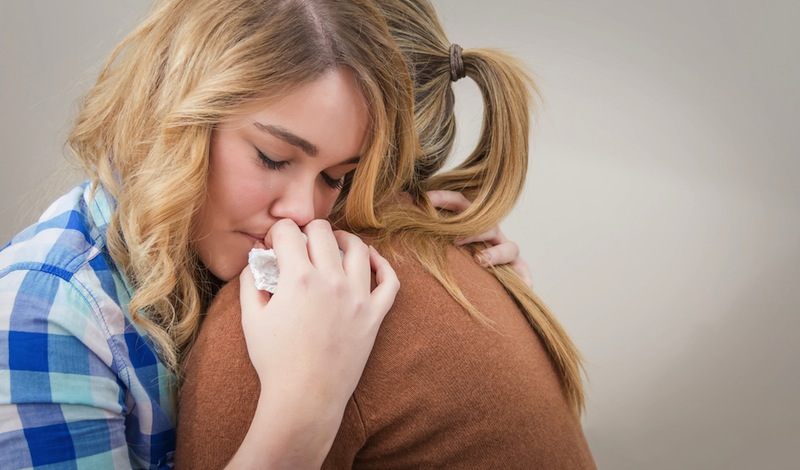How Unconditional Love Helps Kids with Setbacks

Teens who spend some time thinking about situations in which their peers thought well of them, no matter what they did, may have an easier time coping with setbacks, new findings show.
Adolescents in the study who wrote an essay about a time when they felt "unconditional regard" from their peers had fewer negative feelings about themselves after getting a bad report card than kids who wrote about a time when they felt their peers' regard was "conditional," the researchers found.
"We studied this in early adolescence—a time when negative self-feelings peak, and when children often experience conditional regard from peers," said Eddie Brummelman, who was a Ph.D. candidate in developmental psychology at Utrecht University in the Netherlands when he helped conduct the study. "Although we did not study the actual provision of unconditional regard, our findings do suggest that helping children feel accepted and valued without conditions (for example, by reminding them of unconditionally accepting others) might help them buffer their negative self-feelings."
"Unconditional regard" is similar to the more-familiar "unconditional love," and it means that others accept and value you without reservations or conditions. "Conditional regard refers to others making their regard conditional upon the participant's actions, performances or abilities," Brummelman said.
"Sometimes, even well-intended socialization messages can convey a sense of conditional regard, such as when people are warmer, more affectionate towards the child when he or she does well in school compared to when he or she doesn't do so well," said Brummelman, who is now a postdoc at the University of Amsterdam, Research Institute of Child Development and Education. [10 Scientific Tips for Raising Happy Kids]
Feeling negative about oneself in adolescence is not only painful, but can also put a person at risk of psychological problems such as depression and anxiety, Brummelman and his colleagues wrote in their study, published today (Nov. 3) in the journal Pediatrics.
The researchers hypothesized that kids' feelings of shame, insecurity and powerlessness upon receiving a bad grade might be lessened if they had previously spent time thinking about times in their lives when they'd experienced unconditional regard. To investigate, the researchers recruited 247 children between ages 11 and 15 and randomly assigned them to write for 15 minutes about either experiences of unconditional regard, conditional regard, or other social experiences.
Sign up for the Live Science daily newsletter now
Get the world’s most fascinating discoveries delivered straight to your inbox.
For example, one 14-year-old girl wrote about a time when she'd been working with a friend and made a lot of mistakes, but the friend still valued her. Another 14-year-old girl wrote about a time when she'd made mistakes during a handball match, and her teammates "looked away from me and started ignoring me."
Three weeks later, the study participants received their first report card of the year. Later that night, they filled out an online questionnaire about how they felt about their grades.
As the researchers had expected, among the adolescents whose grades were poor, those who'd written about their experiences of unconditional regard felt less negative about themselves than those who'd written about conditional regard, and those who had written about other experiences. But there was no difference among the three groups in their levels of negative feelings toward other people, the researchers noted.
"One question that sometimes comes up is, how can the unconditional-regard exercise exert its sustained effects," Brummelman told Live Science. "It doesn't seem likely that the exercise simply remains accessible in children's minds over long periods."
More likely, [it] is that the exercise creates a self-sustaining process: When children feel unconditionally accepted by others, they may express more welcoming social behavior, thereby eliciting more acceptance from others," he said.
Follow Live Science @livescience, Facebook & Google+. Originally published on Live Science.
Why is yawning contagious?
Scientific consensus shows race is a human invention, not biological reality









